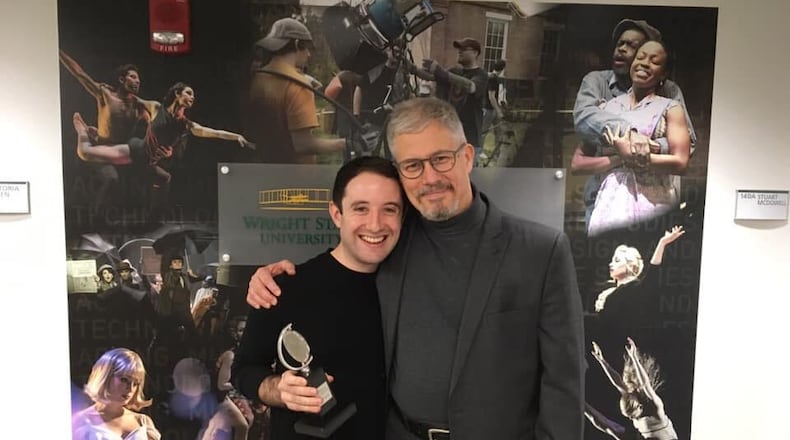Written by Matthew Lopez and inspired by E. M. Forster’s novel “Howards End,” “The Inheritance” addresses the desires, pitfalls, complications and tragedies within New York City’s gay community circa 2015 to 2018. The play, a modern companion to Tony Kushner’s equally resonate “Angels in America” in many respects, notably received the Olivier Award for its London premiere in 2018. Jeremy O. Harris' controversial, thought-provoking “Slave Play” spotlights race and sex in America. Using a plantation as a backdrop but firmly planted in contemporary anxieties and polarization, Harris throws expectations out the window while exploring the complexities of interracial romance.
“These nominations speak to the power of the work and the conversations we’re having as a culture and a country right now,” said Monda, a Youngstown native who won the Tony last year for producing Anaïs Mitchell’s beautiful, dark jazz musical “Hadestown” and was recently named WSU’s 2020 Graduate of the Last Decade. “The fact that both plays were on Broadway before our country’s moment of social uprising and social upheaval just goes to show that it was already in the DNA. Imagine if shows were still running on Broadway and ‘Slave Play’ in particular was still playing at the time of George Floyd’s death. Imagine the play’s (impact), which was already so culturally resonate by speaking to audiences in such a unique way. Matthew Lopez and Jeremy Harris weren’t writing what they didn’t know. They were writing what they felt was already present in the culture. And we are now able to have more articulate conversation about the issues both brought up.”
News of Monda’s nominations came as no surprise to his alma mater.
“It is incredibly exciting to see Joey Monda continuing to produce some of the most exciting theater in the world,” said Joe Deer, Chair of Wright State’s Department of Theatre, Dance and Motion Pictures. “The Best Play nominations for ‘Slave Play’ and ‘The Inheritance’ speak powerfully to his taste for cutting edge new drama and his willingness to risk so much to tell stories that matter today. Who could imagine that these two plays about the continuing experience and legacy of gay men in America and our legacy of racism would seem so prescient for the chaotic world of 2020? I know Joey has helped create his own legacy of theater that matters and speaks to the most intelligent audiences. I’m proud to call him an alumnus of this department and a theatre-maker I admire deeply.”
Monda is encouraged by the nominations, especially the attention it brings to the Broadway community at such a critical time, but the feeling is bittersweet. When the nominations were revealed, he was facing the harsh realities of the business. He spent the day moving his company’s office furniture into storage.
“As a company, we’re excited to commemorate the Tony nominations but we also don’t know when our office will be open again,” he said. “The community is coming together to support ourselves and remind ourselves that what we do has value in society, but at the same time, everyone, including our entire industry, has had to pivot. Our producing office is trying to amplify the need for filmed Broadway shows, which could be the next evolution of the original Broadway cast recording. In the same way every musical goes into the recording studio to record their Broadway album, every musical should be captured for some sort of eventual distribution.”
A date and format for the awards ceremony hasn’t been determined.
In the meantime, Monda urges audiences to remain civically engaged. He considers the Save Our Stages Act, which was passed by the U.S. House of Representatives Oct. 1 as part of the $2.2 trillion Heroes Act coronavirus stimulus package, as an imperative call to action for the future of New York City, Dayton and every city that values the arts. The $10 billion Save Our Stages Act would provide financial assistance for independent music and live entertainment venues across the country.
“The Tonys are an important reminder of our community and a moment of hope for our existence,” he said. “But it comes with the recognition and need to support our art and artists. The Human Race Theatre Company and Wright State University are so integral to my trajectory. The highlighting of all of the great work on Broadway can’t be talked about without talking about the challenges that all the arts are facing. It falls on all of us to understand the emotional responsibilities that art plays in our culture. It also comes with a civic responsibility to not only vote but engage Congress. Art is not partisan. We have to figure out a way to save theater spaces and all havens for art.”
About the Author



